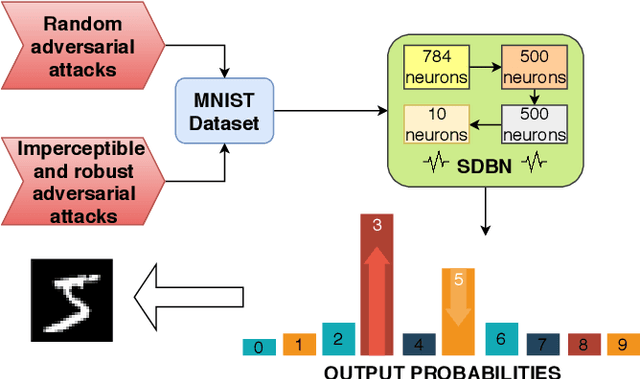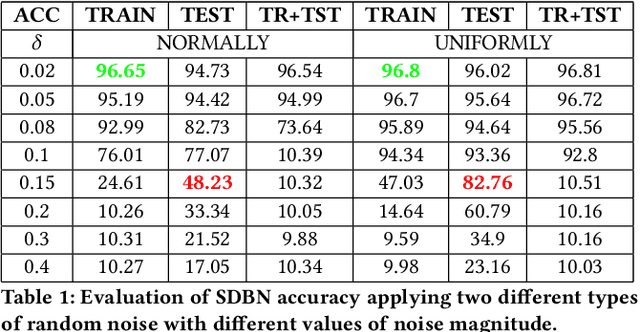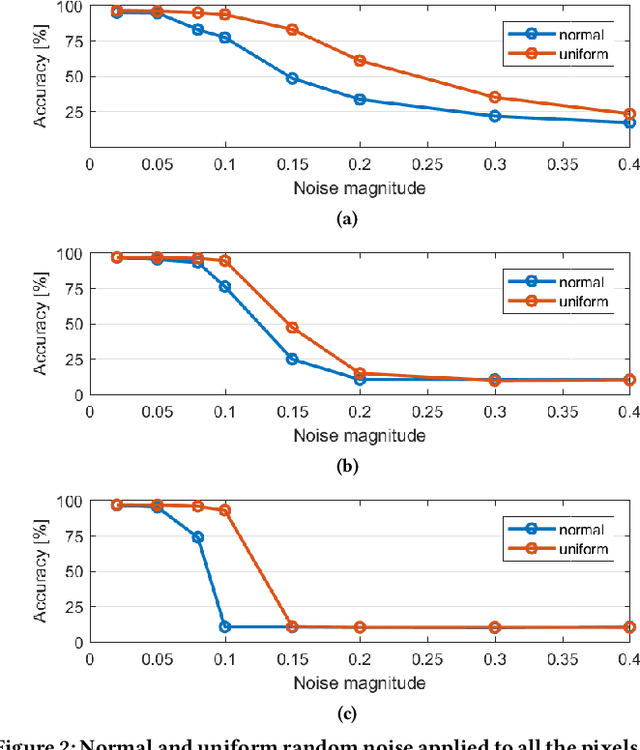SNN under Attack: are Spiking Deep Belief Networks vulnerable to Adversarial Examples?
Paper and Code
Feb 04, 2019



Recently, many adversarial examples have emerged for Deep Neural Networks (DNNs) causing misclassifications. However, in-depth work still needs to be performed to demonstrate such attacks and security vulnerabilities for spiking neural networks (SNNs), i.e. the 3rd generation NNs. This paper aims at addressing the fundamental questions:"Are SNNs vulnerable to the adversarial attacks as well?" and "if yes, to what extent?" Using a Spiking Deep Belief Network (SDBN) for the MNIST database classification, we show that the SNN accuracy decreases accordingly to the noise magnitude in data poisoning random attacks applied to the test images. Moreover, SDBNs generalization capabilities increase by applying noise to the training images. We develop a novel black box attack methodology to automatically generate imperceptible and robust adversarial examples through a greedy algorithm, which is first of its kind for SNNs.
 Add to Chrome
Add to Chrome Add to Firefox
Add to Firefox Add to Edge
Add to Edge